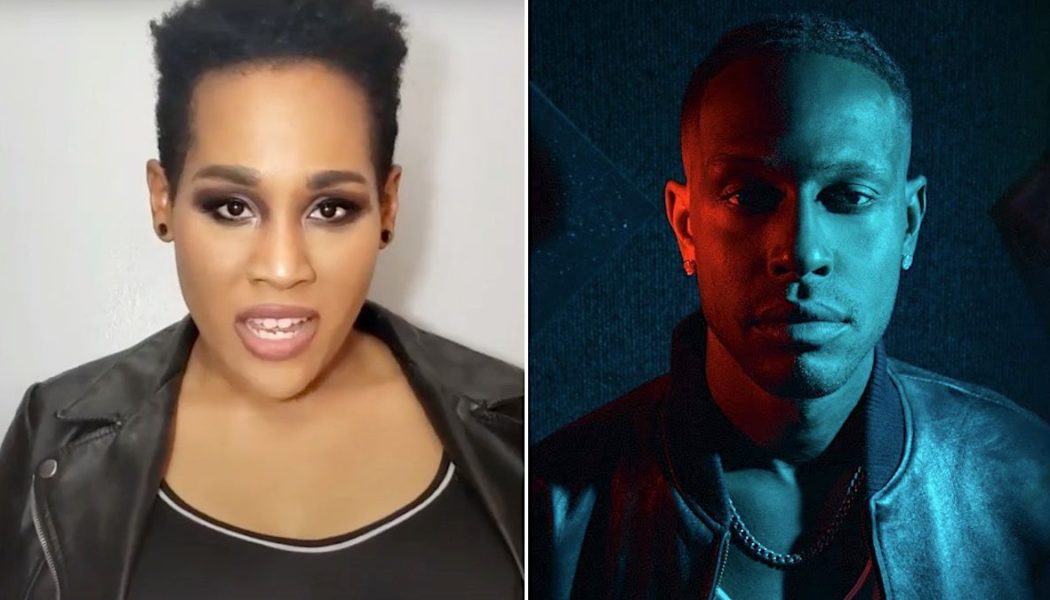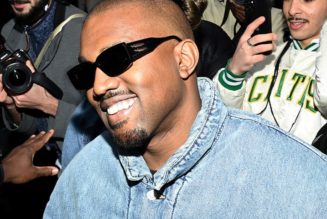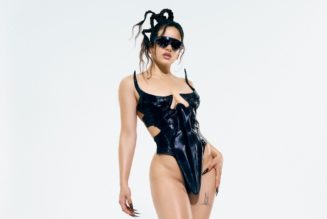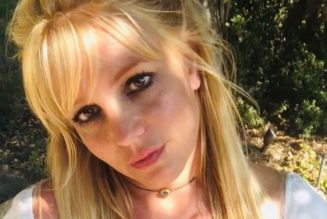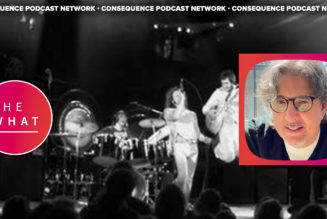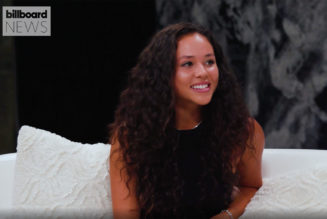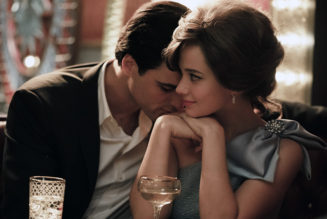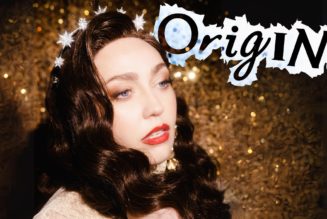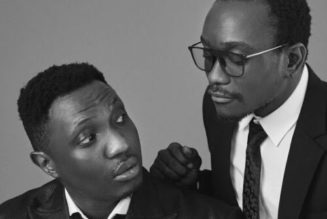
Heavy Culture is a monthly column from journalist Liz Ramanand, focusing on artists of different cultural backgrounds in heavy music, as they offer their perspectives on race, society, and more as it intersects with and affects their craft. The latest installment of this column features Palaceburn singer Meredith Bell and Hyro the Hero and focuses on Juneteenth and other topics.
Juneteenth has just been declared a federal holiday in the United States by the Biden administration. The day, marked on June 19th, commemorates the end of slavery as the date the last remaining slaves in Texas learned of their freedom in 1865, two years after Abraham Lincoln’s Emancipation Proclamation was signed.
Philadelphia-based Palaceburn began their music journey with their EPs The Awakening in 2013 and Curses in 2015. Singer Meredith Bell draws influence from a wide range of artists from Amy Lee of Evanescence to Lamb of God. In 2020, the band released tracks “Stars Align” and the socially driven “And You Wonder Why They Kneel”, and are working on new music this year.
Related Video
Hyro the Hero, also known as Hyron Louis Fenton Jr., released his full-length album Flagged Channel in 2018, fusing hip-hop with metal. Since then, he has collaborated with rock and metal vocalists such as David Draiman (Disturbed), Chad Gray (Mudvayne, Hellyeah). His recent single “FU2” features Fire from the Gods singerAJ Channer.
On this Juneteenth, Bell and Hyro talk about their roots and what this day means to them. They both speak openly about being Black in America and share how music has been a catharsis for each of them through difficult and frustrating times.
Read our latest “Heavy Culture” interview with Palaceburn’s Meredith Bell and Hyro the Hero below:
On the personal meaning of Juneteenth
Meredith Bell: At this point, I look at Juneteenth as our own Independence Day. When it comes to this country, it seems like everyone only gives us [Black people] any sort of attention one month during the year. It’s difficult for us to be able to experience Black joy to really connect and find a sense of community among our own people.
I always look forward to seeing what celebrations are going to be put on by members of the diaspora, whether that be cookouts, forums, art exhibits, poetry slams, plays and performances etc. Philly always puts on for Juneteenth, it’s a great time – and I think it will be greater this year considering all that we’ve gone through.
Hyro the Hero: Juneteenth is an epic day and a reminder of the fight we have in us to make it out of those conditions. It’s showing love to the ones who didn’t have it like we have it today. Though we still fight and go through pain, our ancestors experienced things I can’t imagine. They deserve to be celebrated.
On their cultural background and roots
MB: I’m originally from Virginia. I was raised by my grandparents in a very Southern, Christian town. Mom wasn’t around much and my dad dipped when my parents divorced. I’m a proper Southern belle. I first started singing in the church, where my grandpa was the church pianist. My grandparents were both very big into the Christian faith and instilled those values into me at a very young age. I first developed my love for music and singing through my involvement with the church.
HTH: I grew up in Southside Houston, Texas, home of DJ Screw [Robert Earl Davis Jr.]. My parents are from Trinidad and Tobago, so I got that Caribbean vibe.
On being Black in America in 2021
MB: Being Black in 2021 means being in a constant state of rage. With the Black Lives Matter movement stemming from the senseless acts of violence and murder by our police force, it’s very much a case of history repeating itself. 2020 was an incredibly difficult year due to the pandemic, and consistently dealing with systemic racism on a daily basis just added fuel to the fire. It doesn’t seem like 2021 is going to be any different.
You become very hyper-aware of your Blackness and what that means to you. It affects the way you look at the world, it affects the way you communicate with those around you, especially white and non-people of color. I’ve always been aware of my Blackness, but even more so now.
HTH: In 2021, being Black still means being Black, same soup different bowl. I just hope people are still thinking the words “I’m Black and I’m Proud.” We faced lots of struggles and conquered them all. We are still fighting to this day. What I want is for all of us to have knowledge of self. Learn our history, not his story.
Being in rock music, I was able to learn how other cultures operate around the world and saw struggles they have faced. I’ve learned everyone is not your enemy and people are there from other races that want to help support you any way they can.
On the events of the past year when it comes to the Black community
HTH: It’s great to see how woke the world has become to the struggles of the Black community. Technology has really served as an amazing tool to call out injustice and come together to stop it. We faced this COVID issue locked down in our homes, so all eyes were able to witness situations like George Floyd and do something about it.
The rock community, which is predominately white, really did their best to support the Black community in these hard times. I saw posts from many bands I’ve looked up to showing love and doing what they can to support.
MB: It just makes me angry — angry for people who look like me, angry for families who will never get justice, angry over the ones who will never understand what we go through. I’ve done my best to use that anger for good and take it out on the music — writing “And You Wonder Why They Kneel” was incredibly cathartic for me.
Palaceburn has another song we’re working on for the new record called “fortyacres” which really talks about the hypocrisy of the police. It’s the heaviest song I’ve ever written — being able to work alongside my bandmates has been incredibly helpful.
On Meredith’s experience of being a Black woman in metal and why there aren’t more Black artists in rock
MB: White supremacy. Point blank. When you’re in music class in school, who’s the first person teachers give credit to for creating rock? Elvis. That’s completely and utterly inaccurate. Elvis was a colonizer.
White people always want to take credit for f—ing everything. But it took me years to do the research myself. No one told me. No one gave me the heads-up that the music I enjoyed — my ancestors had an integral part in the creation of the genre. I feel like if history was taught the way that it should have been taught then we would see way more Black rock artists out there…but they’re coming. I see more and more groups every day with Black members, it’ll happen.
My personal experience has been up and down. I sometimes feel that I would be further along in the industry if I weren’t Black. There are no women in the mainstream rock world that look like me. It’s disheartening. But I’ve also had little Black girls come up to me and say that they’ve been inspired, that they wish they had me when they were growing up. I wish I had me too.
Black and Brown girls from all over the world, beautiful, amazing creatures from all walks of life who are in the alternative scene tell me that they look up to me. It’s wild, and I don’t take it for granted, not for a second.
On what people should know about experiences of Black people
MB: That it’s not our choice. That we, as Black people, do not have the privilege to not make things about color. I hear that all the time, you know? “I don’t see color. We’re all the same.” We’re actually not, and that’s the whole point. There are experiences that a Black person has to navigate that someone who is not a POC will never fully be able to understand. The systemic racism, the microaggressions, the fear for your own safety for just doing meaningless tasks, it’s a whole lot.
HTH: The black experience is unique. We are such a diverse people with a history going [back] all the way to Africa. There’s so much I haven’t even learned. What I would want any race to know is that our history was not just slavery. History books in school loved to focus on that part. There was a time we were Kings and Queens in Africa. I didn’t learn that in school.
On what they would say to their ancestors and future generations
HTH: I would thank them as much as I could and wish I can take all the pain away. I’d let them know we’re still fighting and we’re bringing hell to any racist. I’d also let them know about these Karens out here and how we’re catching them with cell phones. I’d inform them of all the outstanding things we have done. I’d show them music videos and my music so they can see how music can bring people together no matter what background.
To all my young people, I would say gain knowledge of self and truly learn your history. Use YouTube to search black scholars and activists of the past who have paved the way for the wokeness you have now.
MB: The only thing I think I’d say to my ancestors is just, “Thank you.” I’m incredibly grateful for their sacrifice and everything they went through so that people like me can have the lives we have.
For the young folks? Keep pushing. Keep striving. Stay true to yourself. Be independent, be yourself and don’t let anyone tell you what you should or shouldn’t do based on your skin color. You have the choice to do and be anything you want. Don’t allow yourself to be limited just because others think something you enjoy is “white”. You define your own Blackness. You define your own journey.
